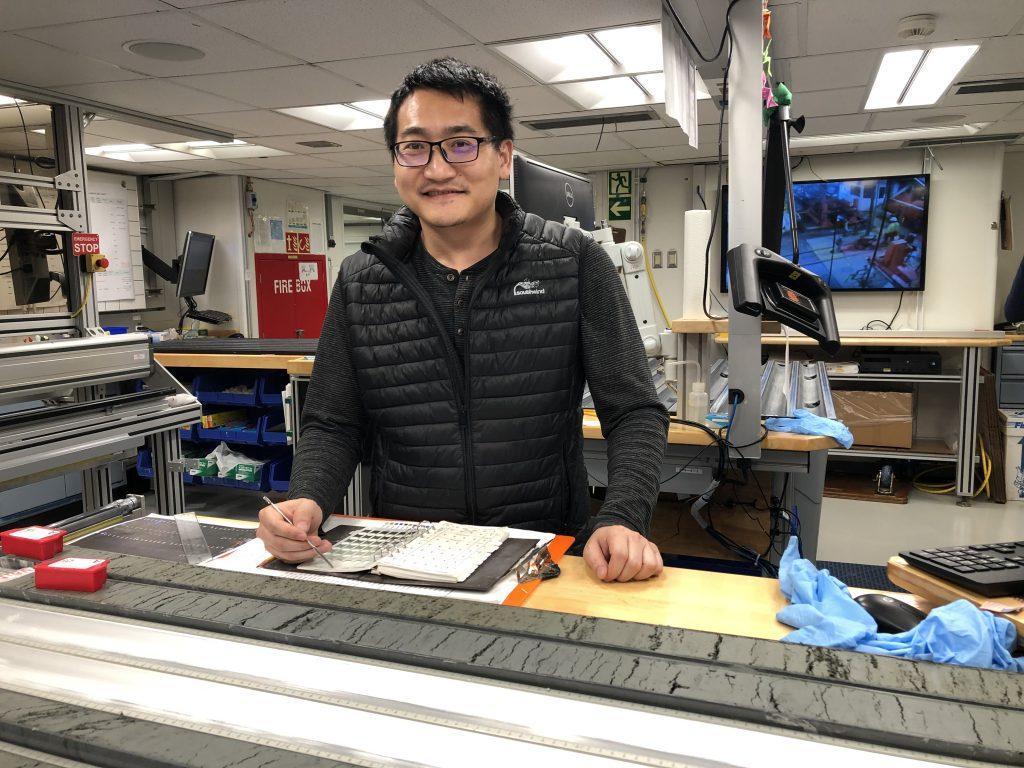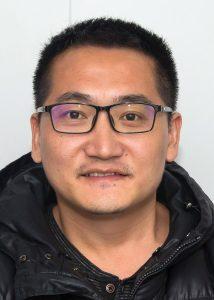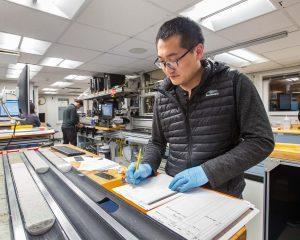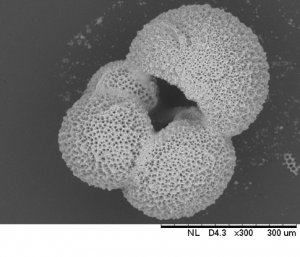
Career Spotlight: Sedimentologist Sui Wan

Sui Wan Interview
Please describe your job duties while on the JR. What will you be doing on a daily basis?
-
-
-
-
-
-
-
-
- On a daily basis, I might be describing core properties, or view smear slides, or scanning core sections, or drawing figures, or dealing with emails.
-
-
-
-
-
-
-
Describe one instrument or tool that is essential for you to do your job? Or a piece of equipment on the JR that is useful and why – what does it do?
-
-
-
-
-
-
-
-
- Scrapers, they are used to make core sediments flat and prepare the core for scanning.
-
-
-
-
-
-
-
Why is your work (or research) important? What question are you trying to answer or how does your work/research help assist/advance scientific knowledge?
-
-
-
-
-
-
-
-
- My main research work is to recognize deep ocean circulation changes and the climatic implications. I try to evaluate the role of deep ocean circulation in the global climate system.
-
-
-
-
-
-
-
Why the ocean? What made you choose a career at sea or career that involves the ocean?
- On one hand, there are lots of interesting and unknown Earth stories through time and space, worth being explored. On the other hand, people involved with the ocean are generous and caring.

What are you most excited about for this expedition and/or being on the JR?
- Attending cross-over meetings. This is when all the scientists meet to discuss current events.
What are three things you think are needed for a successful expedition at sea? And Why!
- I want to have exciting core samples, an unforgotten cruise experience, and participants’ safety.
If you could answer one question about our Earth – what would it be and why?
- To understand the role of deep ocean circulation in the global climate system.
What is your favorite sea creature and why?
- Foraminifera. They are amazing. They are the materials I am using to conduct my study.

What message do you have for anyone considering a career at sea or a career involving the ocean sciences?
- You should keep being curious about unknown things.
What do you do back home when not on the JR?
- I take care of my 4-year old daughter.
The need for space comes in many forms. Which type of space, in general, is the most important to you?
- ___Personal Space
- ___Creative Space
- ___Outdoor Space
- ___Emotional Space
- ___Physical Space
- ___Spiritual or Meditative
- ___Outer Space
- _X_Community Space
- ___Quite Space
- ___Productive/Work Space
- ___Digital/Virtual Space
- ___Public Space
- ___Inner Space
- ___Other: Conference room
Why that type of space? What makes it important to you and will it be available while on the JR?
- First, that is where all scientists gather and it is full of fun and happiness. Second, we can play ping-pong there. I am so excited about that. The last but not the least, it is where a small group of people can work and discuss everything, such as science and life.